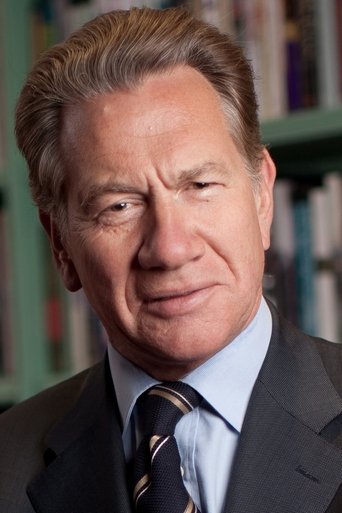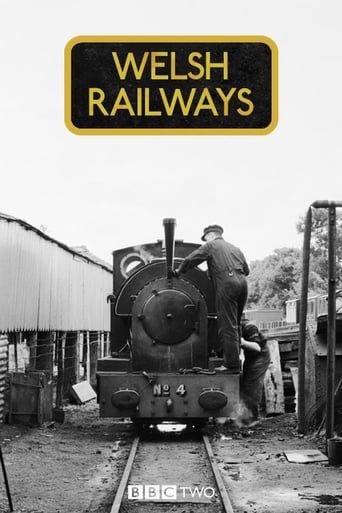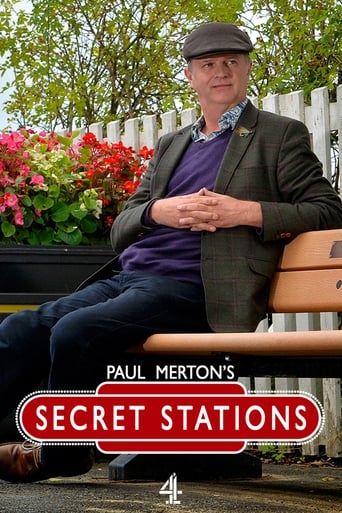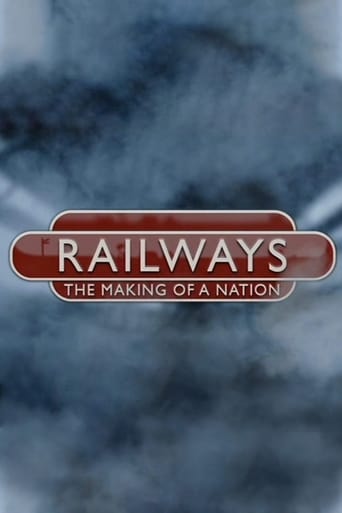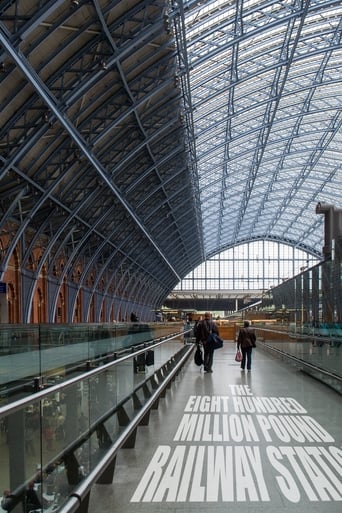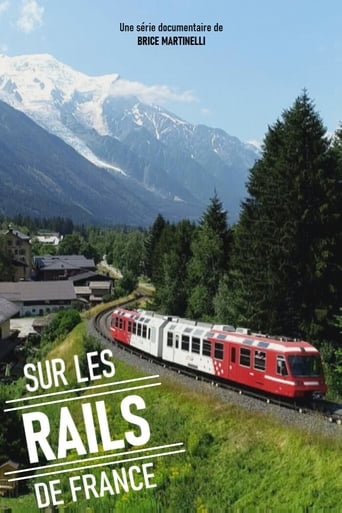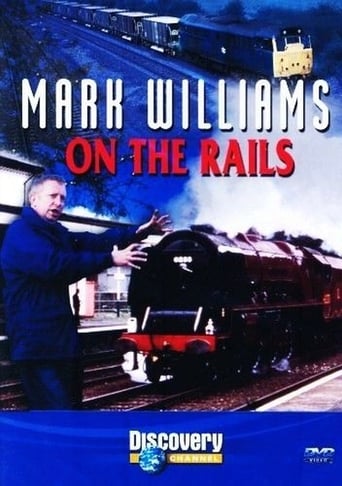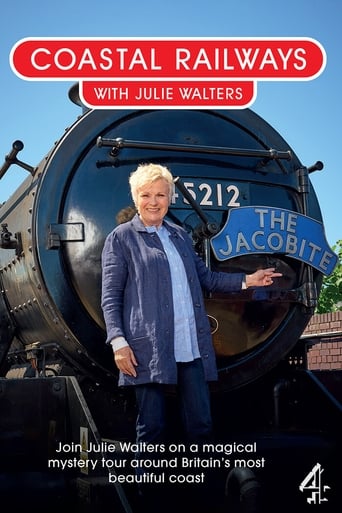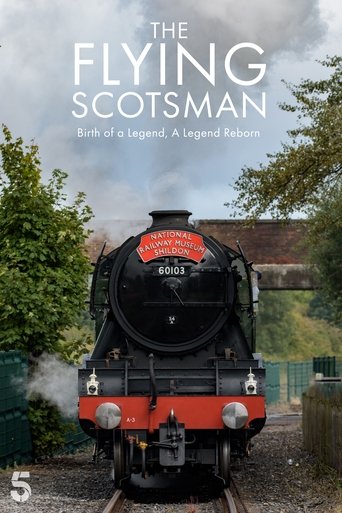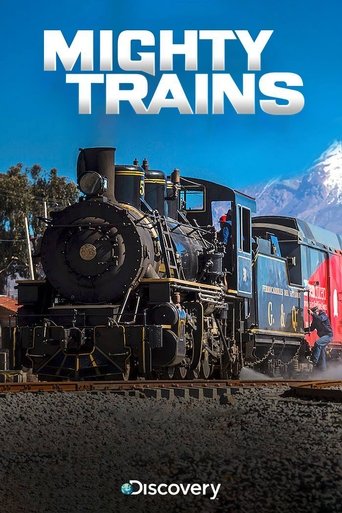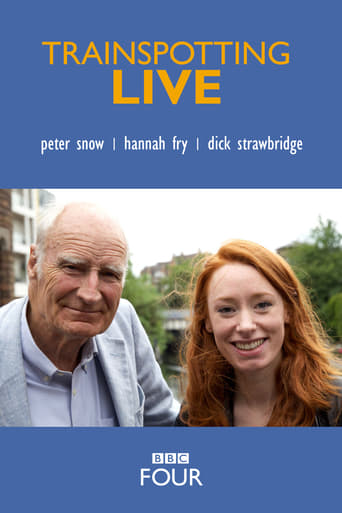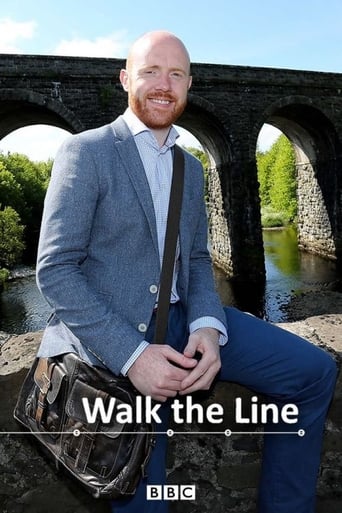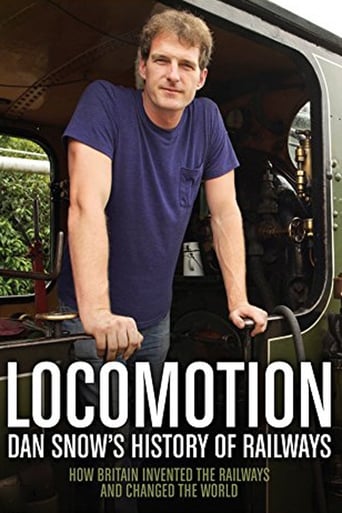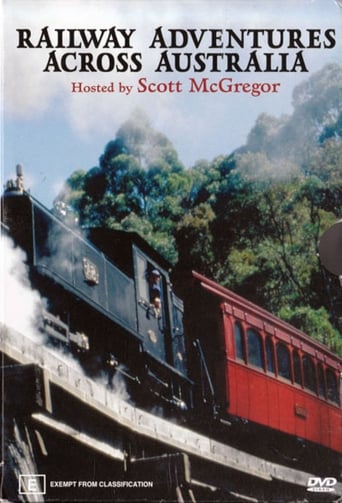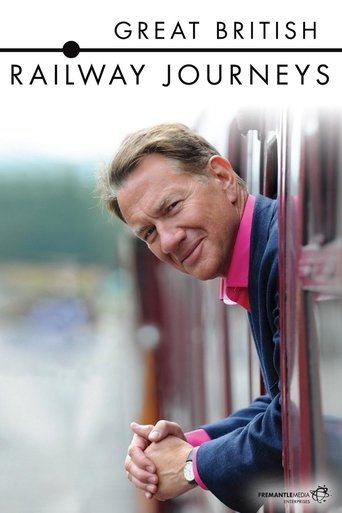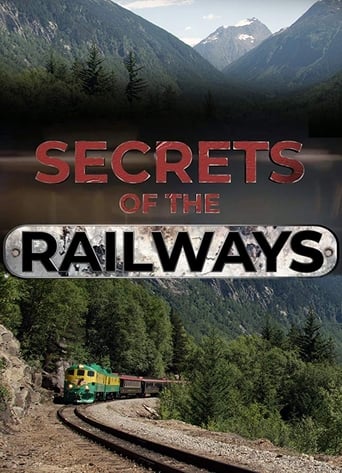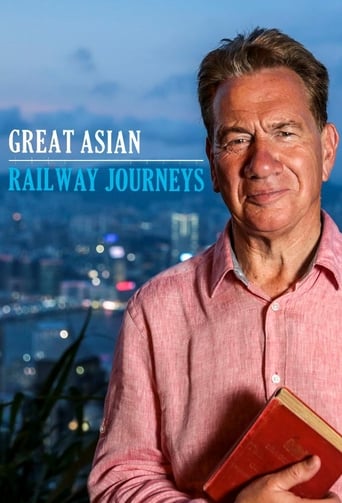
Da Nang to Hoi An
Michael Portillo continues his thousand-mile journey through Vietnam aboard the Unification Railway from Ho Chi Minh City to the capital, Hanoi. Leaving what locals still call Saigon, Michael heads to the fishing port of Phan Thiet, where he learns how to make Vietnam’s signature fish sauce. In the Annamite Mountains west of Da Nang, Michael joins modern Vietnamese on holiday in a quirky facsimile of a medieval French village. And in the tailoring capital of Hoi An, Michael discovers the favourite food of the region’s silkworms and sees how Cham weavers make their distinctive brocade. Can he resist a colourful new jacket?
- Dave Minchin
Country: GB
Language: Cn | En | Id | Ms | Pt | Th | Vi
Runtime: 30
Season 1:
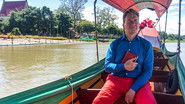
In Hong Kong, Michael Portillo investigates how Britain won the island and Kowloon from China after two drug wars. He straddles a bamboo pole to learn the traditional Cantonese art of noodle making.
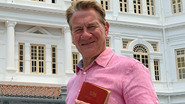
Michael Portillo continues his exploration of Hong Kong aboard the impressive MTR metro system, which handles six million trips a day. In Wan Chai, he discovers why Hong Kongers are protesting all over the city and asks them about their hopes and fears. At Hong Kong University, Michael learns about the father of modern China, Sun Yat Sen, who was a student there at the time of his Bradshaw’s Guide. In the walled villages of the New Territories, Michael meets a descendant of one of Hong Kong’s oldest dynasties.
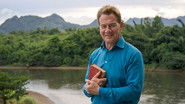
Steered by his 1913 Bradshaw’s Guide, Michael Portillo embarks on a four-part rail adventure through Thailand from the northern city of Chiang Mai to Kanchanaburi on the River Kwai, and from Bangkok to the southern beach resort of Hua Hin. On this leg, Michael tries his hand at the art of umbrella making and learns about northern Thai cookery. He explores the walled and moated city of Chiang Mai, former capital of the Lanna Kingdom before it was annexed by the King of Siam. Travelling south to Lampang, Michael discovers the former centre of the teak wood business and investigates how successive Thai kings preserved their independence from the rival colonial powers of Britain and France. He discovers the history of a British governess at the royal court, who was made famous on stage and screen, and discovers how King George V kept elephants at the British Consulate.
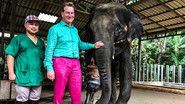
Michael Portillo continues his rail journey through Thailand from Lampang, stopping to help at an elephant hospital, where they care for animals wounded by landmines. In the former Siamese capital of Ayutthaya, Michael admires gigantic ruined temples and finds out about what was one of the greatest cities in Asia. He makes a trip to an unusual market - a must for any self-respecting train-lover. Michael finishes this leg of his Thai journey at Kanchanaburi, close to the border with Myanmar, to ride one of the world’s most notorious tracks and, for him, the most poignant - the Death Railway.
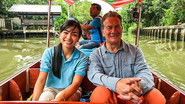
Michael Portillo is in the Thai capital, Bangkok, midway through his rail tour of Thailand. He learns how the late 19th-century King Rama V built a grand palace and introduced railways to his country. He discovers the fine terminus commissioned by the king and meets a historian and designer who shares family roots with the present royal dynasty. Michael learns that King Rama V’s love of steam engines was inspired by Queen Victoria. At the colossal new station under construction in the city, Michael hears how its four levels and 24 platforms will transform Thailand’s transport infrastructure. He circles the Grand Palace by tuk tuk, then boards the 21st-century skytrain for a wonderful view of the city. Michael dines on the water in a floating market, where purchases are made from boat to boat. Following in the footsteps of writers such as Joseph Conrad, Graham Greene and John Le Carre, Michael checks into the Mandarin Oriental Hotel, built just before his guide.
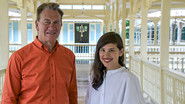
Michael Portillo continues his exploration of Thailand by rail, steered by his 1913 Bradshaw’s guide. He steps into the ring under the guidance of champion trainer Master Toddy to learn Muay Thai boxing. Can he perfect the cobra-inspired right hook? Taking his courage in both hands, Michael confronts his dread of snakes to assist in a surgical operation on a deadly venomous king cobra. He discovers the lifesaving work of Bangkok’s Queen Saovabha Memorial Institute, established at the time of his guide by the royal family after the death of a young princess. Striking south to the resort of Hua Hin, Michael learns the history of the Southern Railway and hears how royal patronage kickstarted today’s Thai tourist industry. He meets the niece of the present king, Rama X, at the Palace of Love and Hope, created by their ancestor, King Rama VI, to hear about a colourful restoration project.
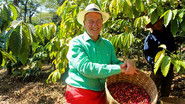
Armed with his 1913 Bradshaw’s Guide, Michael Portillo boards the Unification Railway for a thousand-mile journey from Ho Chi Minh City in the south to the northern capital, Hanoi, and finishing in the beautiful emerald seas of Halong Bay. Michael’s Bradshaw’s unlocks for him the traumatic 20th-century history of today’s Socialist Republic of Vietnam, a former French colony. On this leg, Michael braves the streets of Ho Chi Minh City on a motorbike, one of 8.5 million people to do so daily. He attempts the national sport, da cau, and samples the French-Vietnamese fusion food banh mi.
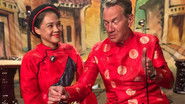
Michael Portillo continues his thousand-mile journey through Vietnam aboard the Unification Railway from Ho Chi Minh City to the capital, Hanoi. Leaving what locals still call Saigon, Michael heads to the fishing port of Phan Thiet, where he learns how to make Vietnam’s signature fish sauce. In the Annamite Mountains west of Da Nang, Michael joins modern Vietnamese on holiday in a quirky facsimile of a medieval French village. And in the tailoring capital of Hoi An, Michael discovers the favourite food of the region’s silkworms and sees how Cham weavers make their distinctive brocade. Can he resist a colourful new jacket?
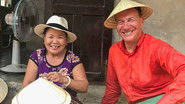
Michael Portillo continues his thousand-mile journey aboard the Unification Railway from Ho Chi Minh City in the south to the capital, Hanoi, and on to the vast northern port of Haiphong. He finishes amid the limestone islets in the turquoise waters of Halong Bay. Steered by his 1913 Bradshaw’s Guide, Michael travels through what was French Indochina and is today the Socialist Republic of Vietnam.
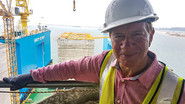
Steered by his 1913 Bradshaw’s Guide, Michael continues his thousand-mile journey through what was then French Indochina and is today the Socialist Republic of Vietnam. Approaching Hanoi aboard the Unification Railway, Michael passes the famous train street, where the locomotive passes within centimetres of the houses either side of the tracks. Checking into the capital’s famous Metropole Hotel, built at the time of his guidebook, Michael discovers a bunker where guests sheltered from American bombardment during the Vietnam War. And at the Ho Chi Minh Mausoleum, Michael hears about the nationalist leader and his struggle for independence for Vietnam. Egg coffee is a new experience in the Old Quarter and a water puppet show is a hit.
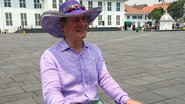
Michael Portillo’s 2500-mile railway tour of south east Asia reaches its southern most point in Indonesia. His journey crosses the island of Java at the heart of this archipelago nation of 270 million people. In the heaving capital city of Jakarta, Michael uncovers Indonesia’s Dutch colonial past and its rich history as a port but discovers its future is uncertain. He negotiates the city’s notorious traffic, makes a colourful cycle ride, tries the newly launched MRT metro and dines out on Jakarta’s famous street food. He admires Bogor’s Botanical Gardens, now a centre for research and conservation, and finds they were developed by an Englishman, Sir Thomas Stamford Raffles, once Governor of Java.
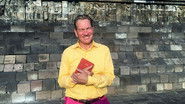
Michael continues his journey across the largest island of the Indonesian archipelago, from the capital, Jakarta. His seven-hour railway journey takes him through rainforests and paddy fields as he heads to the volcanic heart of Java’s Central Province. He visits Java’s most dangerous volcano, Mount Merapi, and learns how over 300 people were killed when it erupted in 2010. In the nearby village of Bendo, Michael tries his hand at the traditional art of noodle-making. This leg of Michael’s journey ends at the country’s greatest ancient monument, the magnificent Borobudur Temple, where he hears that the world’s largest Budd
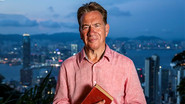
Michael Portillo’s rail tour of south east Asia resumes in the southern archipelago of Indonesia. Michael is in Java’s Central province, travelling east towards Surabaya. Beginning in Java’s royal city, Yogyakarta, Michael visits the Sultan’s palace and admires the ancient art of shadow puppetry known as wayang. Struck by the colourful patterned fabrics in the city’s markets, Michael investigates the process of batik, a Unesco world heritage textile, and is tempted by a saucy sarong. Moving north to Ambarawa, Michael boards a scenic heritage line constructed by the Dutch with carriages dating from the time of his Bradshaw’s guidebook. Today, this restored relic of the colonial era is cherished by Javanese tourists.
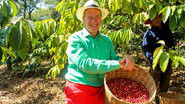
Steered by his 1913 Bradshaw’s guidebook on a 2,500-mile rail tour of south east Asia, Michael Portillo is in Indonesia, today one of the biggest coffee producers in the world. In the mountainous interior of Java, Michael discovers how coffee was first brought to the island for cultivation and learns about production today. In the city of Semarang, headquarters of the Dutch East Indies Railway Company, Michael visits the Great Mosque, whose sheer scale is a reminder that there are more Muslims in Indonesia than in any other country. Journey’s end is at the port of Surabaya, second largest city in Java, a port bursting with local traditions, produce and culture. Michael learns the story behind its proud moniker, “City of Heroes”.
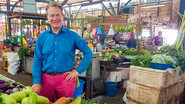
Michael Portillo’s 2,500-mile rail tour of south east Asia reaches Malaysia. On the island of Penang, Michael traces the origins of the former British colony in Georgetown, rides one of the world’s steepest funicular railways and is enchanted by exotic specimens at Malaysia’s first butterfly sanctuary. Travelling on Malaysia’s hi-tech railway network, Michael visits the wettest town in the country, Taiping, and learns how the discovery of tin made this land a prized possession for Britain. Next stop is the regal town of Kuala Kangsar, home to the Sultan of Perak and to one of Malaysia’s most prestigious schools, known as the ‘Eton of the East’. Michael joins pupils in a game of Eton Fives.
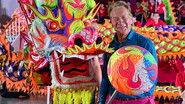
Michael Portillo’s rail exploration of south east Asia continues in Malaysia. His journey resumes in Kuala Kangsar, where he taps into the source of the lucrative rubber industry that boomed at the time of his 1913 Bradshaw’s Guide, when Malaya was a British colony. Michael learns how rubber engineering today ensures railway passengers enjoy a smooth ride. In the cosmopolitan foody town of Ipoh, Michael bakes a popular Chinese treat at a famous Malaysian bakery and enjoys a dragon dance of epic proportions. At a colonial-era hill station in the Cameron Highlands, Michael discovers how the British made themselves at home as he visits a tea plantation by a golf course to taste this most British staple.
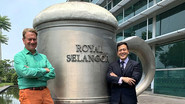
Michael Portillo continues his 2,500-mile rail tour of south east Asia. On this leg, he explores the phenomenal growth of Malaysia’s capital, Kuala Lumpur, from muddy swamp to seat of British colonial power to the financial and economic tiger of today. Michael discovers Kuala Lumpur’s 19th-century origins as a tin mine and tries his hand crafting jewellery at the Royal Selangor pewter factory. In a traditional quarter of the city, untouched by modern development, Michael tastes the Malaysian national dish nasi lemak before investigating the scandalous behaviour of the Britain’s resident general at the turn of the 20th century.
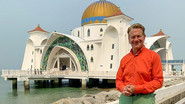
Michael Portillo is in Malaysia on a 2,500-mile tour of south east Asia. His 1913 Bradshaw’s Guide takes him to Melaka, for centuries one of the greatest trading ports in the world. He tastes the spicy cuisine of the Kristang community, descendants of early 16th-century Portuguese settlers who mixed with local Malays. Continuing to Kluang amid fertile farmland, Michael joins in the pineapple harvest and discovers how Malaysia’s resources of tin and tropical fruit created a global market in food. Arriving at the tip of the Malaysian peninsula in Johor Bahru, Michael visits the palace of Sultan Abu Bakar, a canny and well-travelled monarch who became friends with Queen Victoria and used what he learned in Britain to modernise his realm. Michael learns how Malaysia’s first ever railway fell prey to an implacable foe.
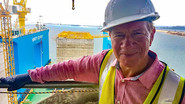
Michael Portillo’s south east Asian railway tour reaches its final stop - the phenomenally successful island city state of Singapore. In the historic centre, Michael discovers Singapore’s maritime origins and the vision of the 19th-century Englishman who put it on the map. In the Long Bar at the iconic Raffles Hotel, Michael treats himself to a Singapore sling, now a world-famous cocktail. A boat trip along the Singapore River reveals how trade flourished under British colonial rule. And Michael marvels the scale of shipping today on a visit to a vast construction site, where a new mega port will strengthen Singapore’s position as a global trading hub. In Chinatown, Michael dines with an artist and his family and learns about the history of the Chinese community. At the Singapore Botanic Gardens, Michael helps to keep the orchids blooming, and later, he enjoys an extraordinary spectacle at gardens of a very different kind down by the bay.

Michael Portillo is in the island city state of Singapore on the last leg of his 2,500-mile exploration of south east Asia. In Tai Seng, Michael goes underground to marvel at the world’s largest subterranean rail depot, where self-driving MRT trains are maintained. He takes a cable car to Fort Siloso on the island of Sentosa, where he learns about one of Britain’s worst military defeats and the brutal Japanese occupation which followed. Downtown, over coffee with the regulator of the Singapore Stock Exchange, Michael marvels at the island’s astonishing success as a financial centre and, in the residential district of Ang Mo Kio, he visits an urban farm for the future - on a car park roof. At Boat Quay, Michael finds out about Lee Kwan Yew, Singapore’s prime minister for 31 years, who was responsible for Singapore’s extraordinary 20th-century growth.

